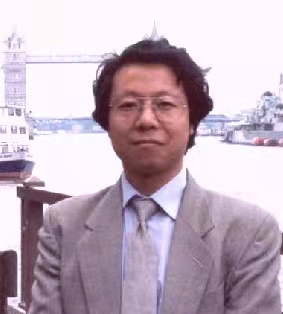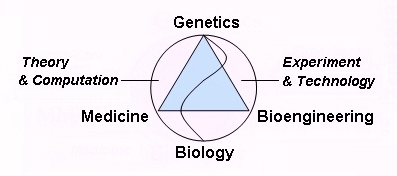|
- Systems and synthetic biology, are the science and engineering of bio-systems by using integrative methodology of systems approaches, experimental technology, computational bioinformatics, and engineering biology at the levels of molecular and cellular bio-systems.
Systems genetics is the cross-discipline to study the expression patterns of genotype-phenotype complexity, non-linear cell dynamics, genomic stability and evolution of organogenesis etc. During pattern formation, each independent complex trait of organism being controlled by synergic expression of gene group (multi-genes),and forms a functional or morphogenesis unit (module).
Synthetic biology (systems bio-engineering) is the engineering discipline of genomic construction and systematic designing of molecular modules for artificial bio-systems used as bio-sensors, cell computer, bioreactor and cell factory, which involved in gene analysis, molecular drug screening, and transgenic expression of pharmaceuticals etc..
- We are studying of pharmacology and systems genetics for understand the evolution and development of neuro-endocrine network at the aspects: mutants of cell lineages, identified genes involved in cell differentiation and pathology of complex diseases.
To understand the dynamics of genomic information, the genes regulatory network of genetic program and the bio-logic mechanism of bio-systems, the methods of and signaling biology, designing of bio-bricks of molecular modules, and synthesis of artificial cells will be used.
|
 Bangzhe J. Zeng (BenJoe Tseng)(ÖÐÎÄ)
Bangzhe J. Zeng (BenJoe Tseng)(ÖÐÎÄ)
 -Zoology - Genetics and Transgenics
-Zoology - Genetics and Transgenics
 Bangzhe J. Zeng (BenJoe Tseng)(ÖÐÎÄ)
Bangzhe J. Zeng (BenJoe Tseng)(ÖÐÎÄ)
